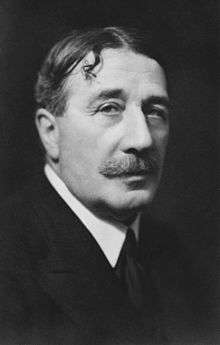Émile Chartier
| Émile Chartier | |
|---|---|
 Alain in 1931 | |
| Born |
3 March 1868 Mortagne-au-Perche, Orne |
| Died |
2 June 1951 Le Vésinet |
| Other names | Alain |
| Alma mater | École Normale Supérieure |
| Era | 20th-century philosophy |
| Region | Western philosophy |
| School | Continental philosophy |
|
Influences
| |
|
Influenced
| |
Émile-Auguste Chartier (French: [ʃaʁtje]; 3 March 1868 – 2 June 1951), commonly known as Alain ([alɛ̃]), was a French philosopher, journalist, and pacifist.[1] He adopted his pseudonym in homage to the 15th-century Norman poet Alain Chartier.
Early life
Alain was born in 1868. He entered lycée d'Alençon in 1881 and studied there for five years. On 13 June 1956, the lycée was renamed lycée Alain, after its most famous student.
Career
After Alain qualified at the École Normale Supérieure and received the agrégation in philosophy, he taught at various institutions: Pontivy, Lorient, Lycée Pierre Corneille in Rouen,[2] and, in Paris: (Lycée Condorcet and Lycée Michelet). From 1903, he contributed to several journals using his pseudonym, Alain. He was most commonly referred to as "Alain" by his pupils and peers.
In 1909, he was appointed a teacher (or professor) at the Lycée Henri-IV in Paris. He deeply influenced his pupils, who included Raymond Aron, Simone Weil, Georges Canguilhem, and André Maurois.[1] Reviewing the beneficial effect he had on his former pupils Simone Weil and Simone de Beauvoir, Professor John Hellman writes that Alain was the greatest teacher of their generation.[3]
Among his most important publications are The Dreamer, 81 chapters about the spirit and passions, About Happiness, Mars, and The citizen against powers.[1]
Death
He died in 1951. He is buried in the Père Lachaise Cemetery.
Works (selection)
- Petit Traité d'Harmonie pour les aveugles (Short Treaty of Harmony for the Blind; in braille), 1918
- Mars; Or the Truth about War, New York, Jonathan Cape & Harrison Smith N.D., 1930
- Alain on Happiness, New York, Ungar, 1973
- The Gods, New directions, 1974
References
- 1 2 3 Foray, Philippe (1993). "ALAIN (1868-1951)" (PDF). Prospects: the quarterly review of comparative education. Paris: UNESCO: International Bureau of Education. XXIII (1/2): 21–37. doi:10.1007/bf02195023. Retrieved 2009-04-14.
- ↑ Lycée Pierre Corneille de Rouen - History
- ↑ John Hellman (1983). Simone Weil: An Introduction to Her Thought. Wilfrid Laurier University Press. p. 8. ISBN 0-88920-121-8.
External links
| Wikimedia Commons has media related to Alain (Émile Chartier). |
| Wikiquote has quotations related to: Émile Chartier |
- Works by or about Émile Chartier in libraries (WorldCat catalog)
- About Alain
- Alain, Philosophical and Humanistic Norman
- Works by Alain, in french
- Works by Alain (public domain in Canada)